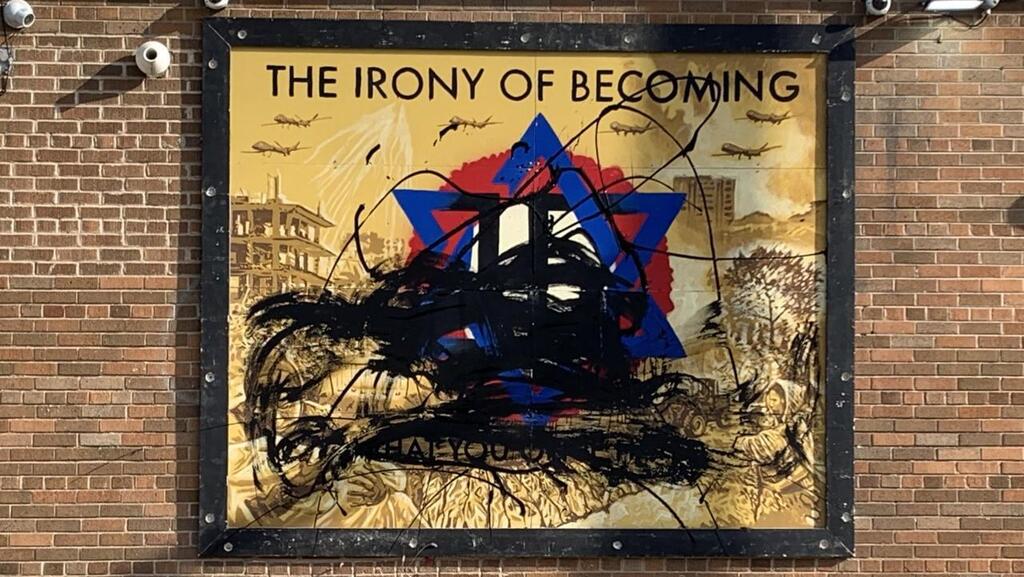A unique and divisive case in Milwaukee is set to begin on Wednesday: Rabbi Peter Mahler, 74, and his son Zechariah, 41, will stand trial for allegedly destroying a controversial mural downtown that juxtaposes a Star of David with a swastika.
The artwork, created by Palestinian-American Ihsan Atta, has already stirred outrage in Milwaukee’s Jewish community, which condemned it as antisemitic. The trial raises complex questions about free speech, hate symbols and the limits of protest.
According to court documents, the Mahler duo used an axe and sledgehammer to dismantle the mural, causing over $12,000 in damage to the wall. Security footage allegedly shows Zechariah making an obscene gesture at the camera before declaring the mural “incendiary hate speech.”
The pair have admitted their actions, with Mahler stating, “We understood the consequences. If we face prison or fines, so be it.” If convicted, the two could face fines of up to $10,000 and over three years in prison.
Atta, who owns the building where the mural was painted, defended the piece as a critique of Israel's actions in Gaza, not an attack on Judaism. “This is legitimate political commentary, not hatred towards the Jewish community,” he said.
The mural includes a caption reading, "The irony of becoming what you hated," alongside imagery of destruction in Gaza. Atta has insisted Star of David is a political emblem due to its presence in Israel’s national identity.
This is not the first time the mural has sparked tensions. Since its unveiling, it has been repeatedly vandalized, including an earlier incident where it was covered in black paint. Milwaukee’s Jewish leaders labeled the artwork as “a vile act of Holocaust denial” and a deliberate provocation. “This mural is deeply offensive to Holocaust survivors in our community,” said Miriam Rosenzweig, president of the Milwaukee Jewish Federation.
The Mehlers’ actions have been both lauded and criticized. Supporters argue that the mural was designed to provoke hatred, making their destruction a stand against bigotry. Opponents, including Atta, see the act as criminal vandalism and an attempt to silence dissenting voices. Legal experts suggest the case could set a precedent for how far individuals can go when protesting offensive or inflammatory speech.
Zechariah Mahler
The controversy surrounding Ihsan Atta's murals extends beyond the courtroom. Earlier this year, Atta launched a crowdfunding campaign on GoFundMe to create more murals similar to the one combining the Star of David and the swastika, which he described as critical of Israel's "genocide" in Gaza.
Following inquiries by Ynet, the platform removed the campaign, citing violations of its terms of use. Despite this, Atta remains undeterred, vowing to continue his work and provoke what he considers necessary conversations about the conflict.
He has announced plans to replace the damaged mural with another piece highlighting the Palestinian struggle. “This is only the beginning,” he stated, promising more visual protests in response to Israel’s actions. Local authorities remain concerned about the potential for further conflicts surrounding his work.
Rabbi Peter Mahler, a co-founder of the local Betar USA chapter, has received support from the Zionist youth organization during his legal battle. Betar USA has publicly condemned the mural as antisemitic and pledged financial assistance for the Mahlers’ legal fees and related expenses, framing the trial as a fight against hatred and defamation.
Get the Ynetnews app on your smartphone:







